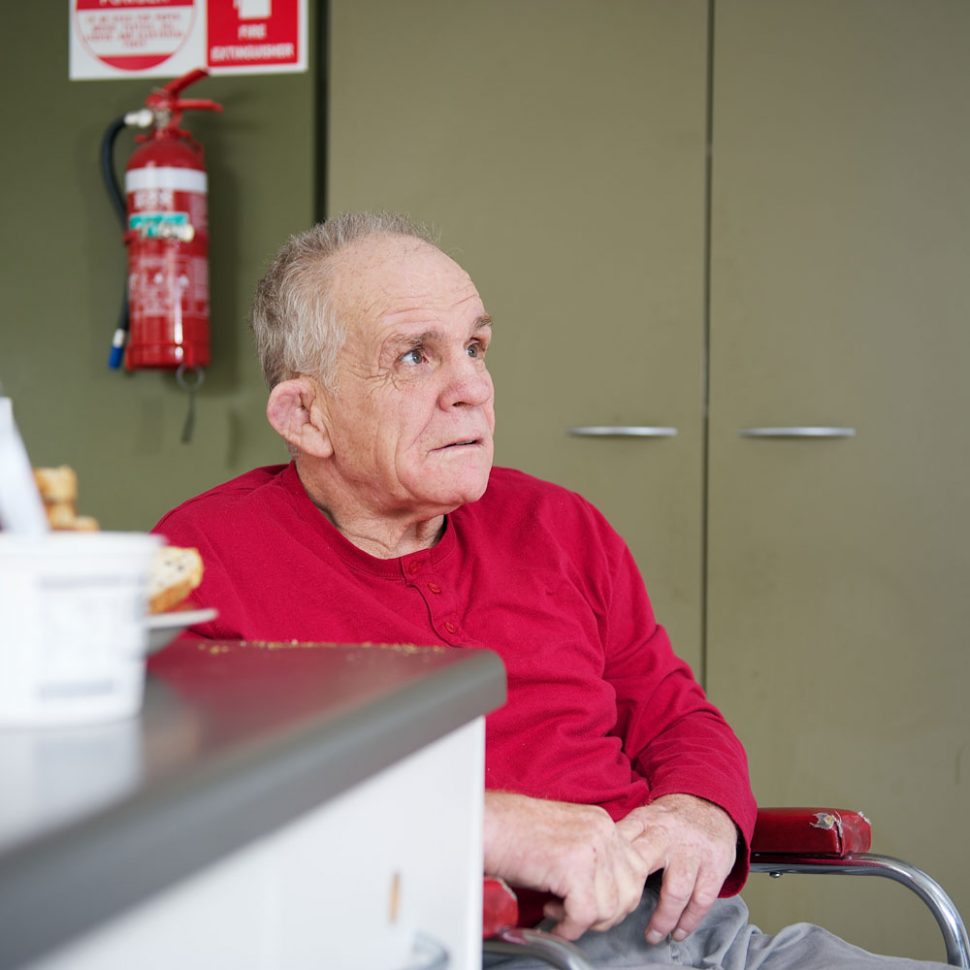Keep kicking at the bricks …

But the committee has made heaps of good recommendations in their last few reports. They clearly share your frustration at the pace of change – it drips from every page. Many of the recommendations in this report are marked urgent. So the big question is – what’s it going to take to get some action?
So what did the report say?
While it feels like a long time ago now, the report is the result of an inquiry the Committee held late last year into SIL. We asked you for your stories to tell the committee – and you responded in spades. We passed all your stories on – and along with our awesome EAC Champion Peter Tully presented them to the committee in person.
The report makes it clear that what you had to say had a really big impact on the committee.
The headline finding was that SIL is one of those areas where unfortunately very little has changed with the introduction of the NDIS. Despite the promise of change, housing options for most people are still very much limited to shared settings and group homes. And for people living in those shared settings, very little is being done to explore other possibilities. In something of an understatement the committee noted:
“Evidence suggests that the existing SIL regime may force participants with SIL to live in shared settings, and may be perpetuating older models of disability support rather than delivering the innovations promised by the NDIS.” (page xviii)
The committee also found that:
👉 Some people are finding it very hard to get the evidence they need to show that they need SIL. Particularly if they have to pay for expensive assessments and reports.
👉 There is lots of confusion around what SIL is and how it works. And many planners don’t talk to people about what their options might be.
👉 Quotes for SIL are still being submitted and approved without input from people with disability and their families.
👉 Many people in shared settings still have no say in where they live or who they live with.
👉 There are clear conflicts of interest when the same service provider provides the housing and the daily support and support coordination on top of that. The committee found the NDIA and the NDIS Quality and Safeguards Commission needs to urgently start work to separate them out.
👉 The process for applying for both Specialist Disability Housing (SDA) and SIL is complicated and confusing. And there are lots of delays.
👉 Much more needs to be done to support people with complex needs – including better training for staff.
👉 There is a need for more funding for advocacy and supported decision making to help people explore alternatives, and to make sure they have the support they need to live the life they chose.
So what did the committee recommend?
The committee made 45 sensible and practical recommendations for change. They included:
✅ The NDIA need to pay for evidence when they require it for a SIL application.
✅ The NDIA need to establish a way of making sure participants and their families review all SIL quotes before they are approved.
✅ The NDIA should give all people living in SIL some support to think about and explore alternatives (including extra funding when it is needed).
✅ People who are living in shared arrangements should have a say in who they live with (hard to believe that in 2020 we need a recommendation like that but here we are).
✅ Both the NDIA and NDIS Quality and Safeguards Commission should immediately start work to separate out housing, support and support coordination so they cannot be provided by the same service provider.
✅ The process for applying for both SIL and SDA needs to be simpler, easier and faster.
✅ Both State and Federal Governments need to fund more advocacy and support for decision making so people can really have a say in where they live, who they live with and how they live their lives.
That last one is absolutely critical. It is hard to ask for something different if you have never had the chance to even think about what different might look like. Or if you have had very little chance to make your own decisions about anything, let alone where you live or who you live with or what your day looks like.
If the NDIS is ever going to achieve real change, and choice and control become more than just words, then there has to be a much greater investment in helping people think about what a good life means to them. And then some help to make it a reality.
Want to read more?
You can find the full report on the NDIS Joint Standing Committee’s webpage.
Or the Every Australian Counts submission summary (PDF) that hundreds of you contributed to.
SBS have published a story – Australians unable to access disability home care services due to red tape, report says
VALID’s plain language guide to SDA quickly explains how SDA and SIL are different and why that matters.
And find our other articles on the Joint Standing Committee here.

Join the conversation